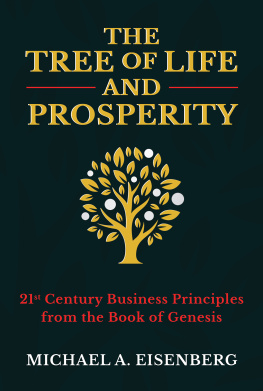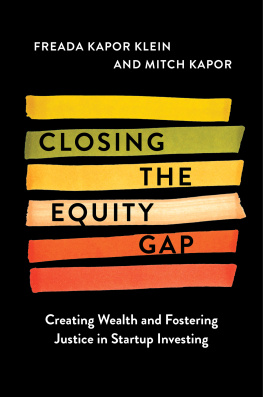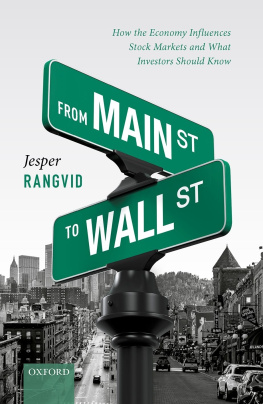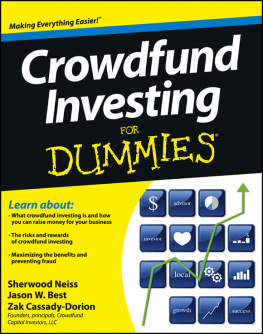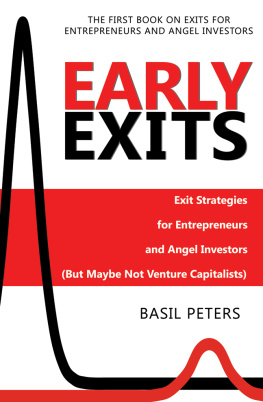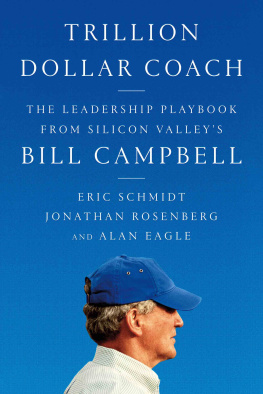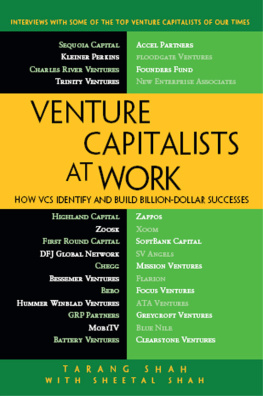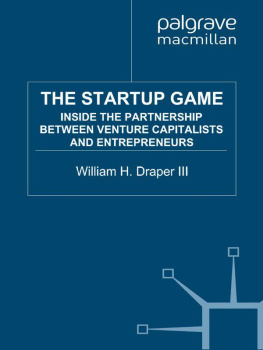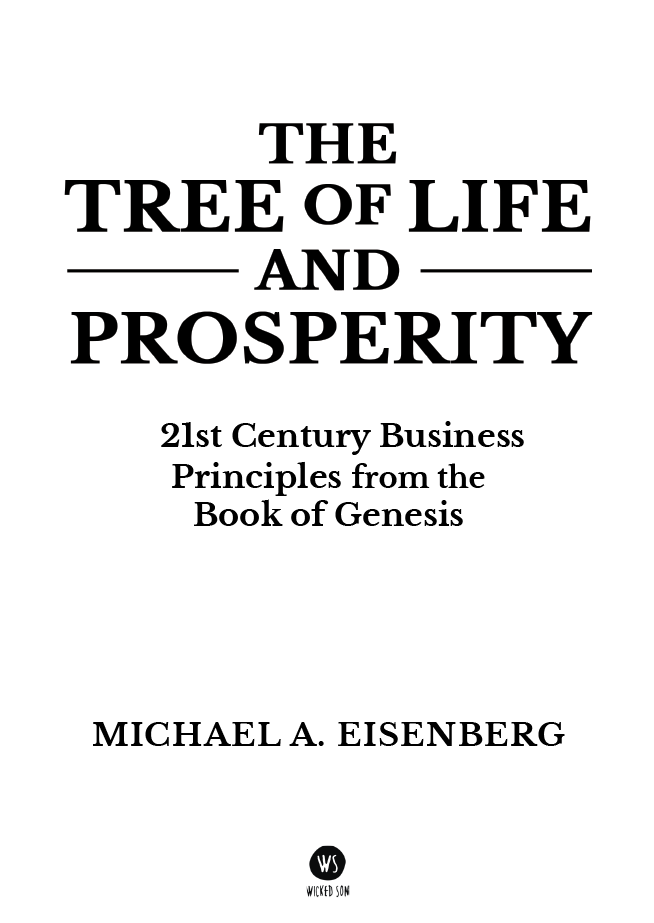
A WICKE D SON BOOK
An Imprint of Post Hill Press
ISBN: 978-1-6 3758-070-7
ISBN (eBook): 978-1-6 3758-071-4
The Tree of Life and Pr osperity:
21st Century Business Principles from the Book of Genesis
2021 by Michael A. Eisenberg
All Right s Reserved
Cover Design by Ti ffani Shea
No part of this book may be reproduced, stored in a retrieval system, or transmitted by any means without the written permission of the author and publisher.


Post Hill Press
New York Nashville
posthil lpress.com
Published in the United States of America
Table of Contents
For Yaffa: my wife, partner, and a paragon of ethics, morals, and self-i mprovement

M y wife thinks that I look at everything through an economic lens, and I am guilty as charged. The world is inherently, naturally economic. In the words of the wisest of all men, Money is the answer to everything (Ecclesiastes 10:19). Or as Liza Minnelli sang in Cabaret , Money makes the world go round.
Moral and ethical principles are, in my view, part of an economys foundations and drivers, so I view my wifes words as a compliment, even a blessing.
The co-head of the yeshiva where I studied when I was nineteen years old, Rabbi Yehuda Amital, once challenged me to move to Israel and open a plant that would employ 10,000 people earning a dignified living. He told me that this would be the best way to fulfill the great mitzvah (commandment) to settle Eretz Yisrael (the land of Israel), for a good living is the basis for sustaining a family and a society. I do not (yet) own such a plant, and I do not know whether the companies I have invested in employ as many as 10,000 people in Israel. So I do not consider myself at liberty to desist from Rabbi Amitals challenge. His words encourage me to reread the equation in both directions: the Torah and commandments are influenced by economics and also influence it.
This bookthe first volume of a five-volume series, one for each book of the Bibleseeks to lay bare the fundamentals of modern economics and to show that systemic understanding and daily encounters with the reality of contemporary economies gives a completely different perspective on the Torah. That same Torah informs economics as well.
Throughout this volume, and in subsequent volumes, we will encounter contemporary economic issues, such as the universal basic income promoted by Facebook founder Mark Zuckerberg, Tesla founder Elon Musk, and one-time presidential and current New York City mayoral candidate Andrew Yang, among others, which Adam in the Garden of Eden already faced. The initiatives and inventions of both Noah and Alfred Nobel will come into focus; Abraham and Andrew Carnegie will develop divergent approaches to wealth; and Jacob and Laban will behave in accordance with the principles of game theory. After we see dramatic economic changes relating to agriculture, urbanization and the undesirable results of too much market intervention, we will conclude with entrepreneurs and managers and their impact on national economies and values. Along the way, we will meet Esau, whose lifestyle was incompatible with the economic changes taking place around him and who was unableor unwillingto adapt.
The world of the twenty-first century, which is undergoing a radical change from an industrial to a technological economy, raises the same questions: Will everyone adapt? Is the world compatible with everyones lifestyles and skills? What about societies that are not yet industrial? The Book of Genesis is a foundational document for a real-world economy, and contemplating it is vital.
The global economy is shifting from an industrial paradigm to one driven by knowledge and data. Nations and states are torn by social and economic rifts and political upheaval. Under changing conditions, we must always seek out first principles. These are what anchor our lives and constitute our moral conscience. Family, social, and moral values are part of the laws of economics. A model that examines the values expressed by the economy and chooses to work toward realizing the best ones is a recipe for economic, financial, and political success.
My years of venture capital investment have taught me that one of the strongest signals of a good investment is when everyone who hears about it thinks it is impossible, impractical, or even foolish.
My first professional investment was in a company called PictureVision. It was 1995, and the internet was still in its infancy. I was sitting on a plane to Tel Aviv next to Gur Shomron, a veteran high-tech entrepreneur, and we got to talking. I was young and curious but completely inexperienced. I had heard Gurs name before, but did not meet him until that moment, when we were sitting next to each other in uncomfortable economy seats. Gur was well over six feet tall, and I am a bit above six feet. He had a heavy Israeli accent, and I was a young, recent American immigrant to Israel. At some point he said to me: I have a friend, really an acquaintance, near Jerusalem. He is having a hard time raising funds. He has an idea related to the internet. Have you heard anything about that?
Several days later, I received a call at our small office in Jerusalem from someone identifying himself as Yaacov Ben Yaacov. To tell the truth, I thought it was my cousin prank-calling from the United States.
It took me a few minutes to realize that Yaacov Ben Yaacov was actually a real person, an entrepreneur with a start-up company that had developed an early method for transferring images over the internet. Today it seems simple, but back then, people were still using cameras with film and negatives, and the internet was running on dial-up modems. We could barely keep our email running smoothly in Jerusalem, so I did not believe he would manage to transfer images. But my curiosity got the better of me.
I traveled to Givat Zeev, a suburb of Jerusalem. There, in the home of Yaacov Ben Yaacov, with the children gallivanting around the house, we sat in his attic with a plate of supermarket cookies and a bottle of Coca-Cola, and he proudly presented his development. I would end up spending many more long hours in that attic, in unbearable heat or with the din of rain on the roof, but that first visit was barely over two hours.
Yaacov scanned a negative, uploaded the file to a local computer, and over the course of more than an hour, he transferred it over the internet to another computer via a landline. Just displaying the picture on the second computer took two minutes and several clicks of the refresh button. Yaakovs venture was penniless, and he was living off the fumes of an idea that was not yet a business. Other investors, including those suggested by Gur Shomron, had rejected it. Yet something about it enchanted me.
I had immigrated to Israel with my wife in 1993, two years before. Our families still lived abroad, and we now had a baby girl. The idea that we could send pictures to our parents and grandparents overseas excited me more and more every time I saw it done. Today we call this photo sharing, but we did not know what to call it then because PictureVision was the first to do it.
Next page
